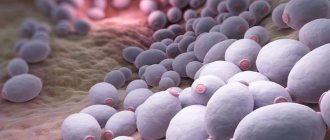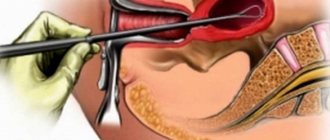Frequent recurrences of thrush are a problem for many people. And a person may not take the persistence of the disease seriously. Be patient and wait for it to go away on its own. But for the body, any changes, good or bad, lead to certain consequences. And if this change is candidiasis, then negligence towards it will give rise to more dangerous forms. Their treatment will require a lot of money and, most importantly, time. Chronic candidiasis tends to recur several times a year. Why does thrush keep coming back? In order not to overpay and not waste energy on treatment, there are effective prevention methods that will help get rid of constant thrush.
Danger
Any advanced disease is dangerous. Thrush is usually divided into three stages of development. The first has initial symptoms, the second is characterized by increased discomfort and the appearance of redness. The third is manifested by serious damage to the intimate area. But the course of the disease in men and women is significantly different.
In men
Men are less likely to get thrush than women because Candida is excreted through the urethra in urine. But if the fungi have taken root, then you should not hesitate with treatment. The disease almost immediately affects the genitals. A white coating is noticeable, discomfort, swelling, pain during urination and sexual intercourse appear. In later stages, erosion of the skin forms, which spreads throughout the body.
If treatment is completed, and thrush continues to bother you, then the cause of relapses is most likely due to disruptions in the body’s functioning. You should not hope that the fungi will remain “at the first stage.” Sooner or later, drug resistance will appear, and the next time the fungus will affect a larger area of the epithelium.
Among women
Thrush in women is accompanied by a characteristic white cheesy discharge, itching and burning in the intimate area. Afterwards, swelling of the genital organs appears. But more often the symptoms remain at the first stage. However, the disease can become chronic if conditions are favorable for the proliferation of Candida fungi. This can lead to damage to the cervix, bladder and urethra. Derived complications: cystitis, urethritis, infertility, etc.
Symptoms
Representatives of the fair sex are often susceptible to thrush. Candidiasis in children and men is observed much less frequently.
Yeast-like fungi Candida live in the body for decades without manifesting themselves. But once the immune system fails, the symptoms of thrush will not keep you waiting:
- White, cottage cheese-like discharge from the genitals, accompanied by an unpleasant odor and itching - this is how candidiasis is expressed in women.
- In infants, thrush appears as a white coating on the gums and tongue. When breastfeeding, the baby cannot suckle due to pain.
- Men characterize thrush as itching, excessive dryness and redness due to irritation of the head of the penis and foreskin.
Watch in this video what thrush is
Causes of relapses
Thrush (caused by fungi of the genus Candida) is an inflammatory lesion of the mucous membranes, which is accompanied by a burning sensation and discharge. The disease is classified as opportunistic and can be transmitted sexually. But development is also influenced by the following factors:
- Decreased immunity;
- Hormonal disorders;
- Pregnancy;
- Stress;
- Diseases;
- Washing out microflora;
- Failure to comply with personal hygiene rules;
- Excess weight.
Decreased immunity
Hormonal disorders
Pregnancy
Stress
Diseases
Failure to comply with personal hygiene rules
Washing out microflora
Excess weight
Immunity is a kind of barrier between the internal and external environment. An exchange between them is inevitable. A person breathes, eats and exists thanks to it. A barrier is necessary to prevent foreign agents from entering the body, as well as to maintain the normal number of bacteria. Candida fungi are components of the human microflora. And they manifest their pathogenic nature when immunity decreases, when the environment accompanies their further development and spread.
An important factor is hormonal imbalances. Failures, if left untreated, lead to disruption of body systems. And constant thrush is just the beginning. The state of the body with an imbalance of hormones is the best time for the active proliferation of fungi.
During pregnancy, intrauterine infection of the fetus is possible. Which threatens premature birth, hypoxia or miscarriage. At birth, the baby may be affected by the mucous membranes of the mouth, as well as the tongue and skin epithelium.
Prevention of frequent thrush
If you are prone to frequent candidiasis, efforts should be directed toward preventing relapses. Simple preventative measures can help with this:
- complete treatment of any infectious diseases;
- careful adherence to personal hygiene;
- balanced diet with a minimum amount of sweets;
- refusal of panty liners and tampons;
- do not constantly use antibacterial products for intimate hygiene, as they eliminate healthy microflora;
- responsible choice of underwear and clothing (to prevent the development of the greenhouse effect);
- maintaining a healthy lifestyle, including hardening, physical activity and walking;
- using condoms when having sex with a new partner;
- taking oral contraceptives and other drugs that can affect the vaginal microflora only as prescribed by a doctor.
The fungus is highly resilient and remains in a woman’s body even after treatment. At the same time, it may not be determined in the laboratory, but may manifest itself when favorable conditions arise. For a complete recovery, you must follow your doctor's recommendations and not self-medicate.
Sources:
https://lechenie-molochnicy.info/postoyannaya-molochnitsa-u-zhenshhin.html https://www.medware.ru/gynecology/pochemu-molochnitsa-vozvrashhaetsya.html https://molochnicamy.ru/therapy/molochnitsa- vozvrashhaetsya.html
Self-medication
Many people, deciding that persistent thrush is caused by decreased immunity or poor diet, self-medicate. Under no circumstances should this be done! Firstly, only a doctor can determine the source of the disease. A qualified specialist will prescribe medications that are specific to your symptoms, not based on general characteristics. Secondly, persistent candidiasis can develop into a new form, which requires more thorough examination and treatment. And a person who does not have the necessary education will not be able to determine the difference in stages only by sensations. And thirdly, the reasons described above can affect the body in more than one point. For example, there may be both a violation of humoral regulation and problems with the gastrointestinal tract.
There is a place for traditional methods of treatment. And if you like a recipe, consult a specialist. He will either approve or, at your request, select the right remedy. And then you will be calm about your health.
Contacting friends with a “similar problem” is prohibited. Each organism is individual. And medicine (folk remedy) affects everyone differently. It helped one, but the other was taken to the hospital with a side effect. It is better to spend an hour visiting a doctor than to trust dubious advice.
Solutions
In order to prevent frequent relapses of thrush, it is recommended to exclude exposure to the following diseases and factors on the body:
- Decrease in the body's defenses. Deficiency of the immune system is observed with damage to the intestines, liver and kidneys. Diabetes mellitus, cachexia, chronic infectious and allergic processes can provoke such disorders. The protective barrier can be broken due to violation of the rest and work regime, against the background of constant physical or mental overload.
- Long-term or uncontrolled antibacterial therapy. Antibiotics, if necessary, should be taken only after consultation with a doctor. Drugs of this type suppress not only pathogenic, but also beneficial microflora in the human body. The fungus is not affected. This contributes to the progression of fungal microflora and the development of vaginal candidiasis.
- Hormonal disorders. Similar changes in the body occur when using hormonal contraceptives or during pregnancy. Hormonal imbalance can be caused by ovarian dysfunction, obesity or thyroid dysfunction.
Among the reasons why recurring infectious diseases occur is poor nutrition. Such abnormalities in the body can develop when carbohydrates predominate in a woman’s diet. A negative factor is spicy, overly salted and fried foods.
Personal hygiene is also of great importance. Please note that women should avoid using sanitary pads every day. You should wash yourself 2 times a day using special intimate hygiene products that have a neutral pH. You should also be careful when choosing underwear. It is recommended to avoid wearing tight models made of synthetic material. Preference should be given to loose cotton underwear.
How to prevent
Taking note of the above points, you don’t have to be afraid of the next development of Candida fungus. Of course, this does not include special cases, but it is quite possible to paint a general picture.
Immunity
Only you are the breadwinner of your health. All that is needed to boost immunity is enriching the body with vitamins and microelements. Modern pharmacy also offers a huge selection of drugs, which does not require large expenses. The problem may also lie in living conditions: work, sleep, workload, etc. Adjust your schedule! No amount of additional earnings and fears of layoffs are worth your poor health. You and your body have to live and live.
Hormonal disorders
Humoral regulation is the most important system in the body. Hormones must be supplied in a certain dosage for normal functioning. Many have seen programs or read in magazines about people with such disorders. Failure leads to life-threatening consequences. Thrush is almost nothing compared to them. Monitor your hormonal levels and be sure to consult a doctor if you notice any changes.
What is recurrent candidiasis and how does it manifest?
Recurrent thrush is a complex form of candidiasis, occurring in waves with periods of exacerbation and remission that replace each other.
Clinical manifestations are the main sign of the disease. The absence of symptoms indicates that there is no disease. Recurrent candidiasis is a serious condition, since the pathogen continues to parasitize, leading to various complications.
Signs of the disease during an exacerbation:
- copious whitish discharge, reminiscent of cottage cheese or sour milk (hence the name), with a characteristic sour odor;
- a whitish coating on the inflamed genitals and skin next to the mucous membranes;
- obsessive itching, which is more disturbing in the evening;
- irritation of the genital organs during hygiene procedures using soap;
- hyperemia of the mucous membranes;
- discomfort during sexual intercourse;
- if the urethra is involved in the pathological process, then there is pain at the end of urination - this is how cystitis manifests itself;
Along with local symptoms, a woman may be bothered by general malaise and irritability, which reduces the quality of life. Symptoms of recurrent thrush appear when the body’s immune forces decrease or the action of provoking factors, for example, taking antibacterial drugs.
Treatment of the disease
In order to get rid of thrush, you can use classical and traditional medicine. However, before choosing any remedy or method, you should first consult with an experienced physician who can conduct a quality survey and examination. After this, you will be able to learn about possible side effects from the use of individual drugs, permission or prohibition on the use of traditional recipes, as well as other important nuances.
Traditional methods
There are a lot of recipes invented by traditional healers for the treatment of thrush. However, the simplest and most effective among them is the use of soda solution. It can be used for baths, making tampons and rinsing. It is only important to prepare non-aggressive solutions, because otherwise you can only damage the mucous membranes more. The effectiveness of soda is ensured by the fact that it creates an alkaline environment at the site of the lesion, when Candida mushrooms prefer an acidic environment.
When can you use folk remedies?
This is permitted only after prior consultation with your doctor and his subsequent approval to take the medications you have chosen or use certain techniques.
If you start taking decoctions and infusions or try to get rid of candidiasis with soda before a professional examination, the result may be unpredictable. In addition, among the negative consequences of self-medication, not only recurrent thrush is possible, but also more serious problems.
Reasons for refusing soda-based treatment methods
The beneficial effects of soda solutions used for washing, creating special tampons, lotions, dressings or baths have long been known to medical professionals.
This reaction is ensured by the fact that fungi thrive in an acidic environment, but die in an alkaline environment, which is precisely what is caused by ordinary baking soda.
However, this food product is not always useful, and its illiterate use can be very dangerous. So, with severe damage to the vagina and an overly concentrated solution, you can only cause greater irritation of the mucous membranes. Also, this remedy is strictly prohibited for pregnant women, because it can harm the fetus and even lead to miscarriage.
Traditional medicine
If you have previously treated a disease with medications, but the disease still returns, then this may be due to two situations:
- you did not comply with the requirements and recommendations of your doctor;
- due to the lack of high-quality diagnostics or the desire to solve the problem with one’s own, an inappropriate remedy was chosen.
In order for recurrent thrush to stop bothering you, you definitely need to see a doctor and undergo a full survey and examination, as well as pass all related tests.
In some cases, treatment with antifungal agents alone may not be enough, and the doctor will prescribe you complex drug therapy.
Reviews
Elizaveta, 22 years old
“Since I have known thrush for a long time (more than 3 years), I have tried various means to eliminate the disease - all without much result. But, having changed many gynecologists, one day I found an intelligent specialist. He prescribed me to take herbal infusions in the form of tea and for douching. In addition, I was prescribed Pimafucin suppositories. After just half a year, there was no trace left of my chronic form of thrush!”
Olga, 36 years old
“My salvation is any fluconazole-based products. Since thrush worsens almost every month, the medicine cabinet is filled with all kinds of suppositories, tablets and creams containing the active ingredient fluconazole. After the first day of treatment, I managed to get rid of the symptoms of the disease. I continue therapy for 5-7 days.”
Daria, 26 years old
“The doctor structured my treatment in 2 steps: immediately taking antifungal drugs, then restoring the microflora. I found a great remedy for myself - Laktozhinal. This drug is not only good for recovery, but also perfectly increases the resistance of local immunity. After this therapy, I got rid of frequent visits from candidiasis, and for 1.5 years I have been living a full life without discharge or discomfort.”
...and forms
If thrush recurs frequently, then we are dealing with a recurrent or persistent form. Causing less discomfort, the first form is at the same time considered more dangerous, since it manifests itself much more restrained, often in the form of only one or two symptoms. This leads to the fact that the patient is often unaware of her illness and is not treated.
The persistent variety is active and easily detected.
Important note: making a correct diagnosis is possible only after specialized studies with the participation of a gynecologist, gastroenterologist, and dermatovenerologist have collected all the necessary anamnestic data, including laboratory tests - culture and light microscopy. That is why it is pointless to talk about self-medication for recurring thrush.
A few words about the symptoms...
The first and classic signs can be considered redness of the skin of the vagina, as well as the space around it. The reason for this irritation is white, lump-like discharge, with a consistency similar to sour cream. Inflammatory processes can lead to erosion, which affects the vagina, cervix and labia.
This unpleasant picture is complemented by the almost constant presence of an irresistible, exhausting itching that rolls in waves, accompanied by a burning sensation. Attempts to scratch the affected areas can only aggravate the situation, leading to tissue injury and facilitating even greater penetration of harmful microbes into the subcutaneous areas.
All this makes the process of urination difficult, leading to frequent failures, and also deprives a woman of the opportunity to experience full pleasure during sexual intercourse - it is better to completely abandon it during treatment.











